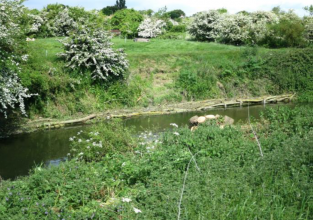Case study:Westborough: Difference between revisions
Dhutchinson (talk | contribs) No edit summary |
Dhutchinson (talk | contribs) No edit summary |
||
| (4 intermediate revisions by 2 users not shown) | |||
| Line 1: | Line 1: | ||
{{Case study status | {{Case study status | ||
|Approval status= | |Approval status=Approved | ||
}} | }} | ||
{{Location | {{Location | ||
|Location= | |Location=52.99212077259784, -0.7242975556686315 | ||
}} | }} | ||
{{Project overview | {{Project overview | ||
| Line 12: | Line 12: | ||
|Main contact surname=Parr | |Main contact surname=Parr | ||
|Contact organisation=Environment Agency | |Contact organisation=Environment Agency | ||
|Contact organisation url= | |Contact organisation url=www.gov.uk/government/organisations/environment-agency | ||
|Name of parent multi-site project=Upper Witham Restoration | |Name of parent multi-site project=Case_study:Upper Witham Restoration | ||
|Multi-site=No | |Multi-site=No | ||
|Project picture=Westborough 1.png | |Project picture=Westborough 1.png | ||
| Line 20: | Line 20: | ||
Objectives: | Objectives: | ||
*Increase riverine diversity | |||
*Stabilise eroding banks | |||
*Reduce sediment input in to the river | |||
*Provide fish refuge areas | |||
*To explore environmental options whilst undertaking regular maintenance activities | |||
*Bring multiple benefits through a joined up approach. | |||
*Reduce ongoing maintenance cost | |||
*Utilise existing materials | |||
*Meet Water Framework Directive objectives | |||
Phase 1 of the project delivered works along a section of bank 300 metres long, initially 40 meters have been reveted and a number of trees pinned. Phase 2 increased the length of works by a further 1.5km and included bank protection and tree pinning. | Phase 1 of the project delivered works along a section of bank 300 metres long, initially 40 meters have been reveted and a number of trees pinned. | ||
Phase 2 increased the length of works by a further 1.5km and included bank protection and tree pinning. | |||
|Lessons learn=That by looking at our existing maintenance works; we can promote best practice by delivering cost saving initiatives that have a wider benefit on river ecology with minimal cost implications. | |Lessons learn=That by looking at our existing maintenance works; we can promote best practice by delivering cost saving initiatives that have a wider benefit on river ecology with minimal cost implications. | ||
|Project title=Westborough | |Project title=Westborough | ||
| Line 82: | Line 83: | ||
{{Monitoring documents end}} | {{Monitoring documents end}} | ||
{{Additional Documents}} | {{Additional Documents}} | ||
{{Case study documents | |||
|File name=Westborough case study final.pdf | |||
|Description=Project Case Study | |||
}} | |||
{{Additional Documents end}} | {{Additional Documents end}} | ||
{{Additional links and references header}} | {{Additional links and references header}} | ||
Latest revision as of 13:39, 27 February 2024
Project overview
| Status | Complete |
|---|---|
| Project web site | |
| Themes | Fisheries, Habitat and biodiversity |
| Country | England |
| Main contact forename | Matt |
| Main contact surname | Parr |
| Main contact user ID | |
| Contact organisation | Environment Agency |
| Contact organisation web site | http://www.gov.uk/government/organisations/environment-agency |
| Partner organisations | |
| Parent multi-site project | |
| This is a parent project encompassing the following projects |
No |
Project summary
To take advantage of regular maintenance activities and utilise existing woody materials to reduce bank side erosion, whilst creating a better riverine habitat.
Objectives:
- Increase riverine diversity
- Stabilise eroding banks
- Reduce sediment input in to the river
- Provide fish refuge areas
- To explore environmental options whilst undertaking regular maintenance activities
- Bring multiple benefits through a joined up approach.
- Reduce ongoing maintenance cost
- Utilise existing materials
- Meet Water Framework Directive objectives
Phase 1 of the project delivered works along a section of bank 300 metres long, initially 40 meters have been reveted and a number of trees pinned. Phase 2 increased the length of works by a further 1.5km and included bank protection and tree pinning.
Monitoring surveys and results
Lessons learnt
That by looking at our existing maintenance works; we can promote best practice by delivering cost saving initiatives that have a wider benefit on river ecology with minimal cost implications.
Image gallery
|
Catchment and subcatchmentSelect a catchment/subcatchment
Catchment
Subcatchment
Other case studies in this subcatchment: Aubourn Rock Ramp and Habitat Works, Belton Floodplain Reconnection and River Restoration, Dysart Park, Grantham Habitat Improvement, Grantham Blue Green - Urban Reach, Little Ponton, Manthorpe Floodplain Reconnection, Papermill Weir Section in-channel restoration, River Witham Great Ponton, Stainby Road, Colsterworth, Syston and Barkston Restoration... further results
Site
Project background
Cost for project phases
Reasons for river restoration
Measures
MonitoringHydromorphological quality elements
Biological quality elements
Physico-chemical quality elements
Any other monitoring, e.g. social, economic
Monitoring documents
Additional documents and videos
Additional links and references
Supplementary InformationEdit Supplementary Information
| ||||||||||||||||||||||||||||||||||||||||||||||||||||||||||||||||||||||||||||||||||||||||||||||||||||||||||||||||||||||||||||||||||||||||||||||||||||||||||||||||||||||||||||||||||||||||||||||||||||||||



